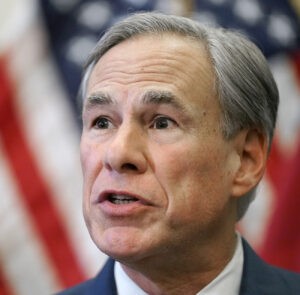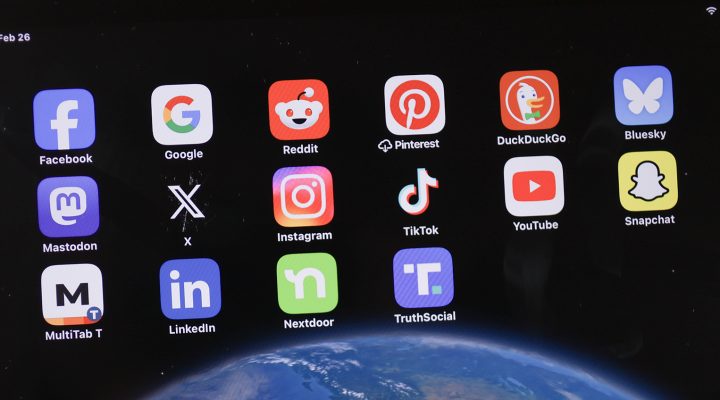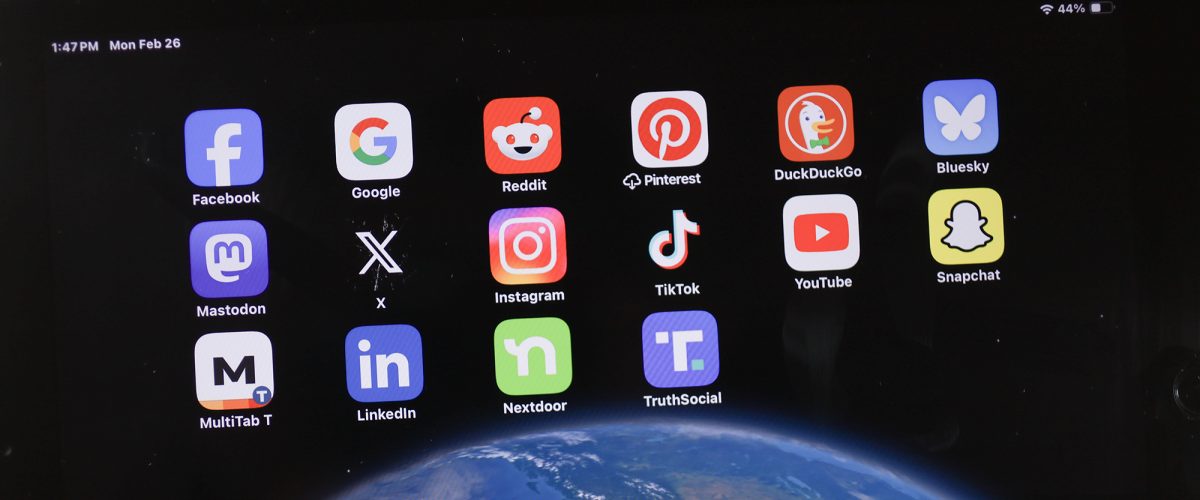The U.S. Supreme Court heard arguments last week on a simple but far-reaching question: Do companies like X, Facebook and YouTube have the right to moderate user content on their platforms? The court’s decision, expected in June, could change what Americans see on these and other sites.
Social media companies own “the new public square” and they have struggled for years to develop policies and procedures that protect users from disinformation, hate speech, obscenity and more.
These companies’ efforts to limit falsehoods about vaccines and the 2020 election — falsehoods promoted mostly by conservatives — and their decisions to deplatform Donald Trump after the January 6 attack on the U.S. Capitol, led many conservatives to complain they were victims of ideological censorship.
A number of religious groups have weighed in on the two cases before the court, which hinge on how one views the tech platforms.
If these platforms are publishers, they are legally entitled to make editorial decisions about which content does and does not appear on their sites. The court previously has ruled against efforts to require newspapers to publish content they don’t want to publish.
But if these platforms are “common carriers” like phone companies, they’re more like pipelines than newspapers and are therefore prohibited from restraining the flow of content, which could lead to them becoming cesspools of hatred and pornography.
“This case presents enormous risks on both sides.”
Amicus briefs illustrate the range of opinions on whether sites should practice content moderation.
“Platforms selectively apply their standards to censor conservative viewpoints,” argued the satirical conservative outlet The Babylon Bee in its amicus brief to the court.
“Examples of censorship and deplatforming of religious voices abound,” argued The Bee. “When Focus on the Family’s Daily Citizen explained transgenderism for its unwoke followers — noting that a ‘transgender woman’ is ‘a man who believes he is a woman’ — Twitter permanently banned the publication for posting ‘hate.’” The Bee also cited bans on posts from “worship warrior” Sean Feucht.
The American Center for Law and Justice, a group founded by Jay Sekulow, an attorney to President Trump, complained about “the ideological totalitarianism of many of the tech titans” in its brief.
ACLJ said “government control over media platforms also raises the specter of imposed ideological conformity,” concluding, “This case presents enormous risks on both sides.”
In 2021, legislators in Texas and Florida decided to do something about it, enacting laws that limit how social media companies control content posted on their sites. The Texas law prohibits sites from removing any user content based on viewpoint, while the Florida law prevents them from deplatforming candidates, as X did with Trump before Elon Musk bought the site and brought Trump back to promote “freedom of speech.”

Texas Gov. Greg Abbott (AP Photo/Eric Gay)
Texas Gov. Greg Abbott said his state’s law means that “conservative viewpoints in Texas cannot be banned on social media.”
Florida Gov. Ron DeSantis said his state’s law would hold accountable those who “discriminate in favor of the dominant Silicon Valley ideology,” according to The New York Times, which called the Supreme Court’s twinned cases “the most important First Amendment cases of the internet era.”
Two tech industry trade groups sued the states, setting the stage for arguments before the Supreme Court. Reporting suggests the justices expressed skepticism about the state laws, both of which have been blocked from being implemented.
Two Jewish groups that fight against antisemitism also weighed in.
The American Jewish Committee’s brief said the group has “closely monitored the connection between hateful speech on those services and acts of real world violence against Jews and other faith and ethnic groups.” AJC asked the court to overturn the laws in Texas and Florida, arguing, “Private online services have a First Amendment right to engage in content moderation — choosing what types of speech to permit, or not permit, on their websites.”
The Anti-Defamation League argued the two states’ laws “unconstitutionally deprive social media platforms of the content-moderation tools they urgently need to help stop the proliferation of hate and harassment online. Without such tools, social media platforms will be ill-equipped to halt the aforementioned escalation of online hate into offline violence, posing a grave threat to the safety and well-being of all, especially the most vulnerable.”
Moms for Liberty, a Florida-based group that opposed school vaccine requirements and Critical Race Theory, argued that “the government may protect consumers against viewpoint discrimination in their use of social media platforms.”
The Rutherford Institute, a Christian legal group, agreed: “The Texas and Florida laws imposing content-moderation restrictions, which prohibit viewpoint-based censorship by social media platforms, comply with and further the purposes of the First Amendment, and therefore this court should uphold those laws, especially the Texas law.”
And the powerful conservative activist group Americans for Prosperity Foundation stayed true to its limited-government values: “The Florida and Texas laws before the court were intended to protect users from being silenced by the social media platforms through which they seek to communicate. But like the old adage about whose ox is being gored, the impulse to require a private party to host third party speech can feel very different depending on whose speech it is and who is being compelled.”


